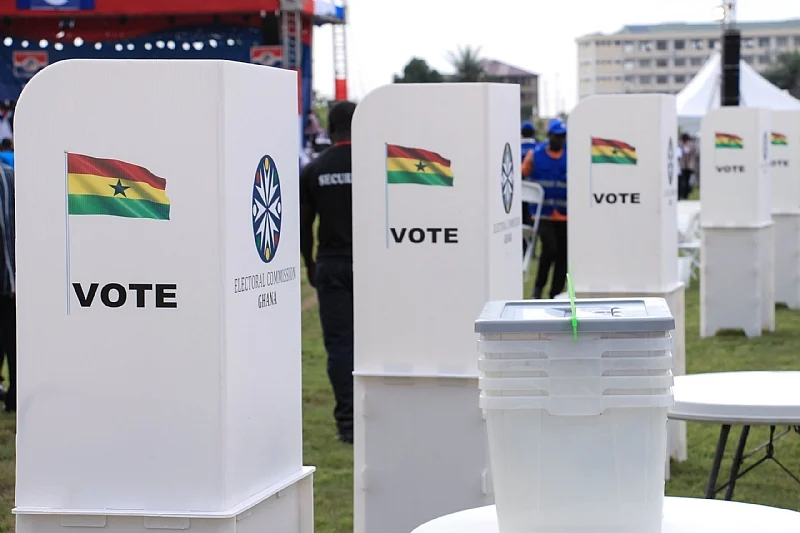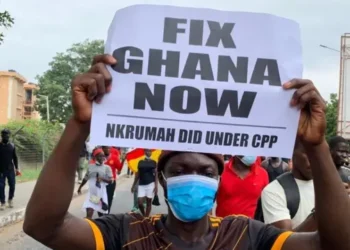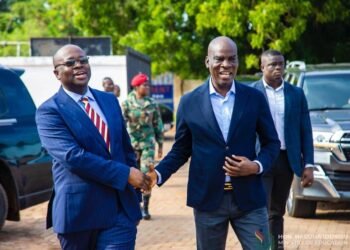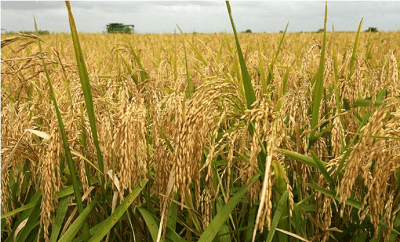The call for Ghana to conduct peaceful elections without deploying military personnel to polling stations is both timely and necessary.
Elections are a cornerstone of democracy, and the presence of the military at polling stations can inadvertently create fear and mistrust among voters, potentially undermining the legitimacy of the process.
Civilian security agencies, such as the police, are better suited to handle electoral security.
Accordingly, ACP Dr. Benjamin Agordzo, the Police Planning Officer at the UN Mission Support for Justice Reform, has emphasized that Ghana can ensure peaceful elections without deploying military personnel to polling stations.
He argued that strategic policing, dialogue, and trust-building are sufficient to maintain election security.
Reflecting on the 2016 elections, widely celebrated as one of the most peaceful in Ghana’s Fourth Republic, Dr. Agordzo remarked, “Not even a fly was reported to have died during the 2016 elections.”
He credited this success to the deliberate efforts of the National Election Security Task Force (NESTF), which effectively utilized a systematic dialogue approach with key stakeholders.
“The dialogue approach was adopted alongside law enforcement because we realized that a militant posture alone could not resolve crises.
“We trained special police officers and deployed them to the borders with UN Police jackets and helmets. No military officer. I am emphasizing this to say that we can do this election peacefully without deploying any military officer”.
ACP Dr. Benjamin Agordzo
Dr. Agordzo cautioned against deploying military personnel during elections, referencing incidents such as Ayawaso West Wuogon and Techiman South, which he described as “still fresh on our minds.”

He warned that such actions could erode public trust and escalate unnecessary tensions.
Calling for peaceful elections, he highlighted the importance of strategic planning, trust-building, and refraining from excessive force.
Dr. Agordzo urged the public to have confidence in the police to manage the electoral process professionally.
He stressed that dialogue, education, and meticulous coordination are key to achieving peaceful elections without the need for military involvement.
Concerns Raised Over National SWAT’s Legality and Role in Elections
Furthermore, ACP Dr. Benjamin Agordzo expressed concerns about the National Special Weapons and Tactics (SWAT) unit, advocating for its exclusion from the 2024 general elections.
He described the unit as “illegal” and unnecessary, questioning both its legal status and the orientation of its operations under the National Security apparatus.
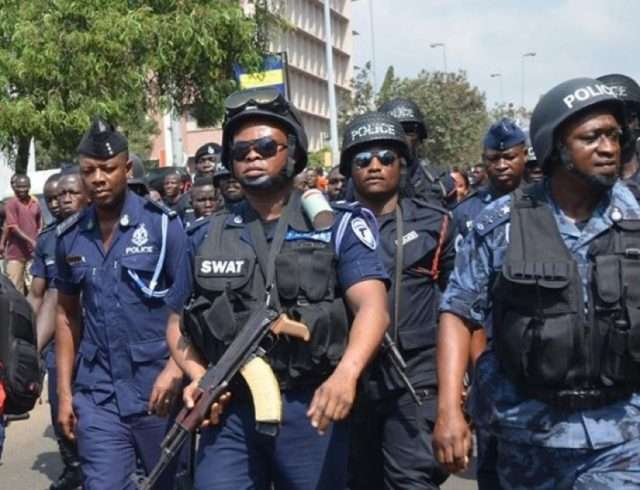
“According to the Constitution, apart from the Ghana Police Service, no other police service should be created unless by an Act of Parliament.
“Where from the National SWAT? Who created it, and under what Act of Parliament?”
ACP Dr. Benjamin Agordzo
He further described the unit’s existence as a constitutional violation, emphasizing that its involvement in elections undermines peace, public trust, and the credibility of the electoral process.
Dr. Agordzo also highlighted the controversial role of SWAT in the Ayawaso West Wuogon by-election, which was widely criticized due to the violence and chaos it caused. “If we really need peace, we must advocate that the National SWAT is not deployed”.
Dr. Agordzo asserted that ensuring election security should be the exclusive responsibility of the police, with support from specially trained officers when required.
He criticized the orientation and training of the National SWAT, claiming it is biased towards serving a particular regime, and cautioned that their involvement could compromise the neutrality of election security operations.
To address these concerns, Dr. Agordzo recommended alternative strategies, including strengthening police capacity and engaging stakeholders early in the electoral process.
He further emphasized the need for a clear distinction between approaches for by-elections and general elections to enhance security and maintain fairness. “We don’t have the luxury of saturating security forces in a single constituency for national elections”.
The senior police officer emphasized the importance of inclusivity in election security planning.
Dr. Agordzo advocated for the inclusion of civil society organizations and think tanks in the National Election Security Task Force, highlighting that their participation would promote transparency and ensure a broader range of perspectives are taken into account.
READ ALSO: US Envoy Sees Progress In Hezbollah-Israel Ceasefire Talks



